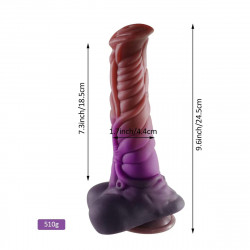
Switch
A switch is someone who participates in BDSM play but does not commit to a single role; instead, they can play either a dominant or a submissive role. A switch can play a more subordinate role and accept pleasure, pain, or both from a dominant partner, or it can guide a submissive partner through a BDSM scene.
They may assume both roles at various points in a scene if they use another switch. A switch may prefer one of these roles or be equally dominant or submissive. They should, therefore, always be at ease in their roles as dominant and subservient.
A switch is not the same as a traditional dominant or submissive person, who keeps their role through various scenes or as a way of life. Because they feel more dominant or submissive at different times, switchers may flip roles. They might wish to engage in various activities and experiences. Their sexual partner may also influence the role they play. Regardless of their partner's BDSM orientation, a switch's adaptability ensures that they can always meet their needs. Relationships or sexual encounters with dominants, submissives, and other switches are possible for switches. Switches can also modify their strategy to make a scene succeed.
Both BDSM roles turn on switches, but they may also fulfill a variety of sexual partners. By tying their partner up or adopting a more dominant sexual position, they switch to taking charge of sexual interactions. They might, however, also enjoy being exposed and having a partner take charge, scolding them, tying them up, or giving them commands.
A switch's actions during scenes are only one aspect of who they are, as is the case with any BDSM activities. In other areas of their lives, switchers may also change roles. For instance, they might be just as open to commands as being in charge and voluntarily controlling a subordinate.
More About Switch
It can be gratifying to be a switch. Switches maintain that switching roles keeps them from becoming disinterested in sex. They can also feel a wider variety of emotions with their partners by adopting dominant and submissive positions. [This can be compared to the LGBTQ+ definition, which states that an individual is not restricted to a single function or position within a partnership.]
In addition, switches can be incredibly sympathetic partners. They can learn what functions well and poorly in these roles from their experiences as both dominating and submissive. They can use this information to have more satisfying sex with their partners the next time they switch.
Because switches play the role they want to play in sex rather than the one they believe they should play, being a switch can also be immensely liberating. They might be more impulsive and imaginative lovers because they are not limited to a single job.
Although switches have many benefits, some members of the BDSM community may criticize them for not being able to decide. Conversely, the majority of switches have been present in the BDSM community for a considerable amount of time. Their dual-role experience enables them to appreciate the satisfaction of being a switch.
Communication is crucial for switches both while attempting to define themselves and when negotiating new relationships. One can ascertain whether a partner is dominant, submissive, or a switch by having an honest conversation with them about their sexual preferences. Whatever the role, further dialogue can then assist in maximizing the benefits of sexual encounters. Switches may discover that their partners prefer that they play a single function in the relationship or that they are occasionally amenable to shifting the balance of power.
Consent for switches is essential, as it is for other BDSM activities. Switches should talk to each new partner about their sexual preferences. They ought to find out if their partners are amenable to changing the balance of power or if they want them to assume a specific role. When adopting the Dominant role, switches must also ensure they respect their partner's boundaries, pay attention to safe words or behaviors, and offer appropriate aftercare. Every time they alter the balance of power, they should also get their partner's approval to ensure that the adjustment is acceptable.
















































